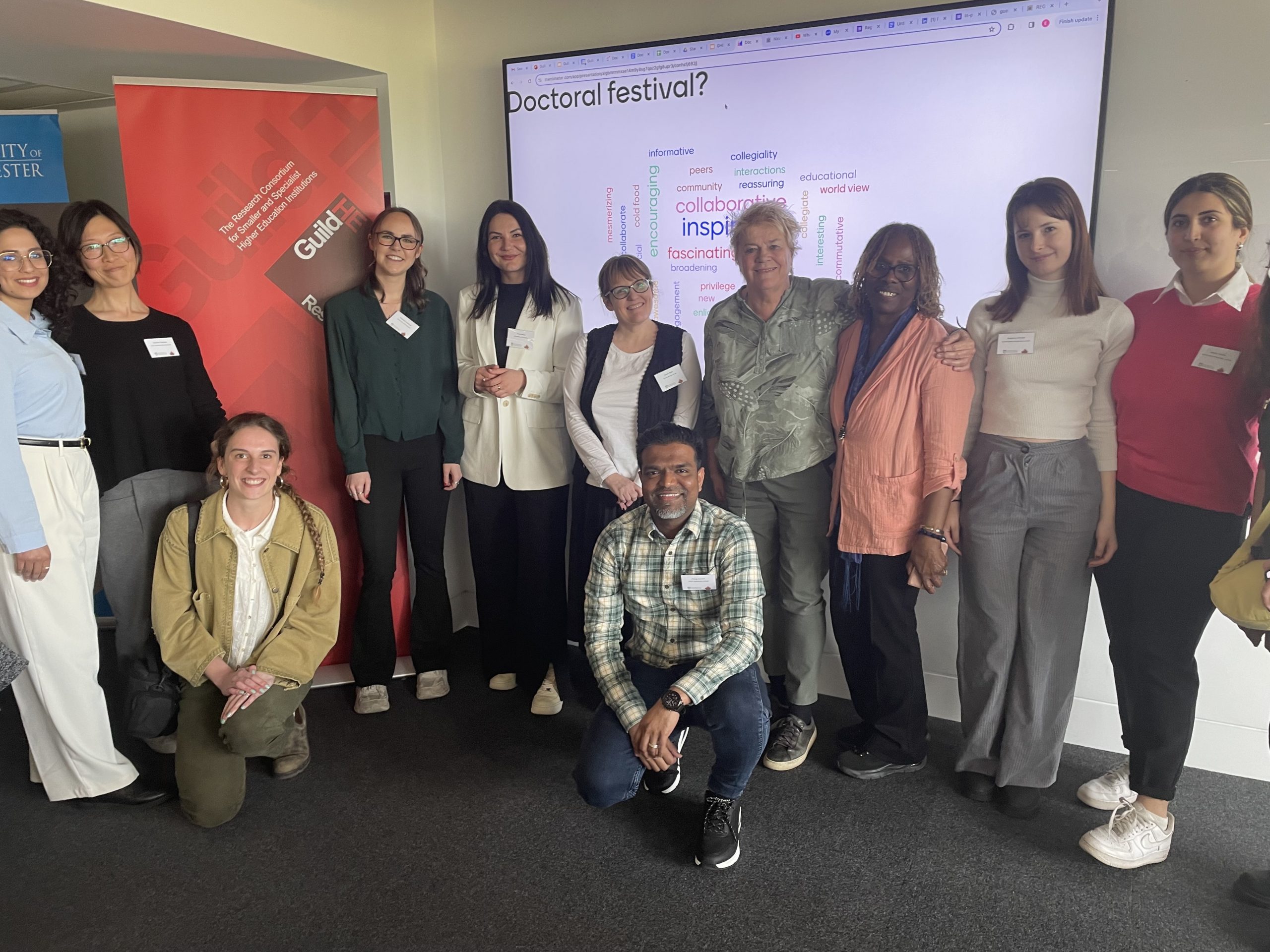In 2021 GuildHE commissioned and published peer-led research into the experiences of minority ethnic postgraduate research students at our member institutions. This research was necessitated by a lack of representation of them in existing data. The diverse institutions we represent have particular specialisms, are teaching intensive and have more modest research environment but which are growing rapidly. Their PGR students are more likely to be self-funded, and more likely to be female and maturer in age. We wanted to illuminate how these factors played out in their individual experiences of starting out as researchers, and help our members understand steps they could take to improve those experiences.
We are delighted to have now launched a GuildHE-wide network for Global Majority PGR Students, which held it’s first session on the 10th July. The network will be co-created with students, and led by them with our support. We hope it will provide a source of safety, allyship, and peer support for those involved, as well as an essential feedback mechanism that can lead to tangible and positive change in PGR experiences at our member institutions.
Following the launch, PhD Student and science teacher Maureen Smith shared her reflections on her engagement with GuildHE’s PGR programme so far; here we share it as an insight into her experience.

GuildHE and GuildHE Research serves a crucial dual purpose in the UK educational landscape dedicated to two objectives. Firstly, it advocates for its member institutions at the highest governmental levels, thereby influencing educational policies. Secondly, it champions diversity and distinctiveness within the education sector. GuildHE demonstrates a commitment to creating a diverse, sustainable educational landscape that enhances access and produces well-educated, socially inclusive graduates and researchers who contribute significantly to both the United Kingdom (UK) and global economies.
Engaging with GuildHE and GHER
My engagement with GuildHE is multifaceted. As an Educational Doctorate (EdD) candidate at Newman University in Birmingham, I have participated in the first two GuildHE Research Doctoral Festivals. The inaugural festival took place at Bath Spa University, while the second was hosted by the University of Winchester. These events have been invaluable for networking, sharing research, and gaining insights from other doctoral candidates and educational professionals. Additionally, my involvement in the organisation of the Global Majority network has deepened my understanding of GuildHE’s commitment to fostering a diverse and sustainable educational landscape.
This initiative has provided me with a platform to share my personal experiences and challenges within the UK educational system, reflecting GuildHE’s dedication to inclusivity and representation. Through these interactions, I have witnessed first hand GuildHE’s efforts to support a broad spectrum of voices and experiences within higher education. The term “global majority” is used to describe people of Black, African, Asian, and dual heritage, as well as those indigenous to the global south, and those racialized as ‘ethnic minorities’. This term avoids the homogenization associated with the acronym BAME (Black, Asian, Minority Ethnic).
This initiative has provided me with a platform to share my personal experiences and challenges within the UK educational system, reflecting GuildHE’s dedication to inclusivity and representation.
My reflective poem
Following the second “setting up the network and co-creation meeting” and my attendance at the Doctoral Festival at Winchester University, I composed a reflective poem. The poem was inspired by a moment during the festival when participants were asked to share something about themselves:
I am Black
A little voice inside of my head,
was telling me:
“This needs to be said”
There was a moment I felt tall and proud;
because I was going to say it,
and I was going to say it out loud.
So out it came vibrating,
as waves through the air!
It wasn’t really,
that I didn’t care.
I’m black
I’m black
I am Black
I felt, that I may come under attack.
I was a minority within that room.
Institutionally, that could spell doom and gloom.
But here was I putting on a brave face.
Acknowledging my position within that place.
This poem captures the essence of my experience, highlighting the significance of embracing one’s identity and the courage it takes to voice it in a setting where one might feel marginalised.


Recent Comments